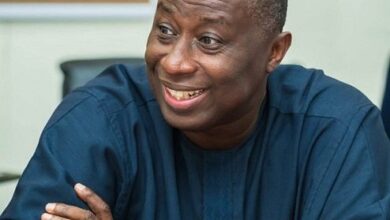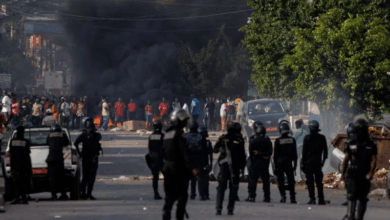The Perils of Prolonging Power: Why Ghana Must Uphold Its Four-Year Presidential Tenure


Ghana’s political landscape, often celebrated as a beacon of stability in West Africa, is now embroiled in a contentious debate: should the presidency’s four-year term be extended to allow for longer mandates? Proponents argue that extended terms would foster continuity and enable presidents to implement ambitious reforms without the constant shadow of re-election.
However, I contend that maintaining the status quo is essential for safeguarding democratic accountability, preventing power concentration, and ensuring the health of Ghana’s nascent democracy. Drawing on historical precedents, comparative analyses, and theoretical insights from international relations, this article presents a robust case against term extension, emphasising that the four-year cycle is a cornerstone of Ghana’s democratic success.
Historical Context: The Evolution of Ghana’s Presidency
Ghana’s journey towards democratic governance has been fraught with challenges, yet it has consistently prioritised checks on executive power. The country’s first president, Kwame Nkrumah, served from 1957 to 1966 under a system that allowed indefinite re-election, culminating in his overthrow amid accusations of authoritarianism. This period highlighted the dangers of unchecked power, as Nkrumah’s regime suppressed opposition and curtailed freedoms, leading to economic stagnation and political instability. The 1966 coup ushered in a series of military interventions, underscoring the fragility of institutions without term limits.
The Fourth Republic, established in 1992, introduced a four-year presidential term with a two-term limit, enshrined in the 1992 Constitution. This framework was a deliberate response to past abuses, inspired by global best practices and local lessons. Presidents like Jerry Rawlings (1993-2001) and John Kufuor (2001-2009) adhered to these limits, facilitating peaceful transitions.
The 2016 election, where John Mahama conceded defeat to Nana Akufo-Addo, further demonstrated the system’s efficacy in promoting legitimacy. Yet, whispers of term extension have resurfaced, particularly under Akufo-Addo, whose administration has overseen economic growth but also faced criticism for corruption and inequality. This debate is not new; similar discussions arose in 2004 and 2010, but were rebuffed. Now, with Ghana’s GDP per capita rising and infrastructure projects underway, some argue that longer terms would allow leaders to “finish the job.” However, history cautions against such temptations
The Case for Accountability: Preventing Power Concentration
At the heart of my argument is the principle of accountability, a fundamental tenet of democratic theory. Term limits act as a safeguard against the accumulation of power, ensuring that leaders remain responsive to citizens. In Ghana, the four-year cycle compels presidents to deliver tangible results swiftly, fostering a culture of performance-driven governance. Extending terms risks creating a “presidential monarchy,” where incumbents entrench themselves, as seen in neighbouring countries.
Consider the theoretical underpinnings: scholars like Juan Linz and Alfred Stepan, in their seminal work on democratic consolidation, argue that fixed terms prevent the “perpetuation of elites” and encourage political pluralism. In Ghana, this has manifested in vibrant multiparty competition, with the National Democratic Congress (NDC) and New Patriotic Party (NPP) alternating power.
A longer tenure could stifle this dynamism, allowing presidents to manipulate institutions for personal gain. For instance, patronage networks might expand, as leaders reward loyalists with appointments, weakening meritocracy. The 2019 Auditor-General’s report revealed significant irregularities in public procurement, partly attributed to executive influence—imagine the scale under extended terms.
Moreover, accountability extends to electoral integrity. Four-year terms align with citizens’ attention spans, ensuring regular scrutiny. Voters can hold leaders accountable for economic policies, such as the Free Senior High School programme, without waiting decades. Extending terms might lead to voter fatigue, reducing turnout and enabling gerrymandering or media control. In an era of social media, where misinformation spreads rapidly, shorter terms amplify public oversight, as evidenced by the 2020 election’s high participation despite COVID-19 challenges.
Fostering Innovation and Renewal: The Benefits of Turnover
Another compelling reason to maintain the status quo is the promotion of policy innovation and leadership renewal. Four-year terms inject fresh perspectives into governance, preventing stagnation. Presidents must prioritise impactful initiatives, knowing their time is limited. This has driven Ghana’s progress: Kufuor’s focus on debt relief and infrastructure laid the foundations for subsequent administrations, while Mahama’s investments in education built on them.
Critics of term limits often cite the need for “experienced” leadership, arguing that novices struggle with complex issues like oil revenue management. However, this overlooks the value of renewal. Research from the African Studies Centre at Oxford indicates that term-limited systems correlate with higher economic growth in sub-Saharan Africa, as new leaders bring innovative ideas. Ghana’s own trajectory supports this: post-2009, under Atta Mills and Mahama, policies evolved to address youth unemployment and digitalisation, spurred by electoral pressures.
Extended terms, conversely, could breed complacency. Leaders might delay reforms, anticipating future mandates. In Zimbabwe, Robert Mugabe’s 37-year rule exemplified this, leading to economic collapse. Ghana, with its youthful population—median age 21—needs dynamic leadership to harness demographic dividends. Four-year terms ensure generational turnover, preventing the ossification of ideas and encouraging mentorship.
Counterarguments and Rebuttals: Addressing the Opposition
Proponents of term extension, including some NPP members and business elites, argue that longer terms provide stability for long-term projects. They point to China’s rapid development under extended leadership, suggesting Ghana could emulate this for infrastructure like the Standard Gauge Railway. Additionally, they claim that two terms (eight years) are insufficient, citing unfinished agendas in health and education.
These arguments, while seductive, are flawed. First, stability does not equate to authoritarianism. Ghana’s four-year system has delivered consistent growth—GDP expanded at 6.5% annually from 2005-2019—without sacrificing democracy. Comparative data from the World Bank’s Governance Indicators show Ghana outperforming peers like Nigeria and Kenya in political stability.
Moreover, long-term projects can be planned across administrations; the Constitution allows continuity through parliamentary oversight.
The “unfinished business” narrative ignores institutional failures. Ghana’s challenges stem from corruption and inefficiency, not term length. Extending terms would exacerbate these, as leaders evade accountability.
In Rwanda, Paul Kagame’s extended rule has boosted GDP but at the cost of press freedom, ranking it 153rd on Reporters Without Borders’ index. Ghana, at 30th, must protect its liberties.
The global context militates against extension. The African Charter on Democracy emphasises term limits to prevent abuse. Extending Ghana’s terms could invite regional backlash, straining ECOWAS relations. As an IR scholar, I see this through the lens of soft power: Ghana’s democratic model enhances its influence; diluting it would diminish credibility.
Comparative Insights: Lessons from Africa and Beyond
Ghana’s experience is not isolated. Across Africa, term extensions have often heralded decline. In Uganda, Yoweri Museveni’s 37-year tenure has stifled opposition, leading to economic disparities. Tanzania’s John Magufuli extended his term amid anti-corruption rhetoric, yet corruption persists. Conversely, countries upholding limits, like Botswana and Mauritius, boast stable democracies and higher GDP per capita.
Internationally, the US two-term limit (eight years) has prevented dynasties, fostering innovation. France’s five-year terms balance continuity with accountability. For Ghana, adopting longer terms risks mimicking authoritarian models, contrary to its post-colonial ethos. As a UK-educated researcher, I draw parallels to Britain’s unwritten constitution, where conventions like fixed terms underpin stability without rigidity.
Implications for Ghana’s Democracy and Future
Extending presidential terms would undermine Ghana’s democratic gains, potentially eroding trust in institutions. Public opinion, per Afrobarometer surveys, shows 70% support for term limits, reflecting fears of power abuse. As Ghana navigates challenges like climate change and inequality, shorter terms ensure responsive governance.
Conclusion: Upholding the Four-Year Tenure
In the annals of governance, where power’s siren song has undone republics, Ghana’s four-year presidential term emerges as a profound bulwark against tyranny—a testament to democracy’s eternal truth that authority must renew, not endure. Born from Nkrumah’s excesses and military shadows, Ghana’s framework affirms that progress thrives in accountability’s rhythm, not permanence’s grip.
To extend these terms is to invite democracy’s slow unravel: pluralism eroded, innovation stifled, sovereignty subverted. It betrays the Fourth Republic’s martyrs, dimming Ghana’s beacon. Yet, in steadfast defence, we reclaim a higher ideal—that collective vigilance births true advancement. Amid global tempests—climate upheaval, inequality, geopolitical flux—Ghana’s commitment not only secures domestic peace but illuminates paths for fragile states. Upholding the four-year tenure preserves democracy’s soul, rekindling freedom’s flame for posterity. The choice looms: accountability’s legacy or prolongation.
DISCLAIMER: The Views, Comments, Opinions, Contributions and Statements made by Readers and Contributors on this platform do not necessarily represent the views or policy of Multimedia Group Limited.
DISCLAIMER: The Views, Comments, Opinions, Contributions and Statements made by Readers and Contributors on this platform do not necessarily represent the views or policy of Multimedia Group Limited.
Source link





